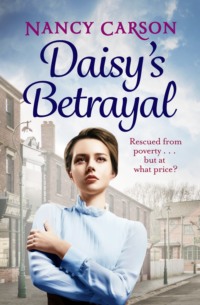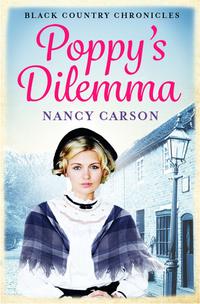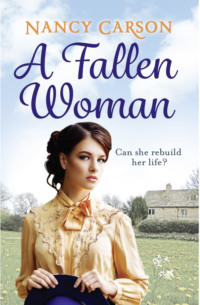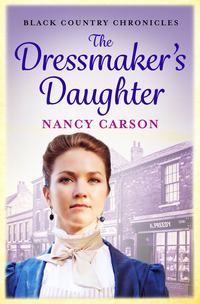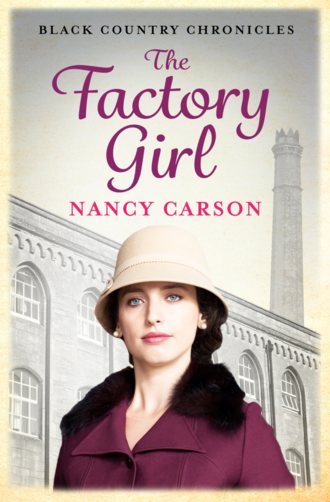
Полная версия
The Factory Girl
Alice shrugged, unconcerned. ‘I don’t see what all the fuss is about.’
Henzey was weeping copiously, tired, and drained of emotion. But she marshalled enough ardour to tell George what she thought of him. ‘Fourteen, sixteen, what’s the difference? Neither makes you any better. Neither makes you a knight in shining armour, specially after you’ve deliberately tried to get her drunk. I bet you think you’re really clever. I bet you and your stupid pals will have a good laugh over this, won’t you?’ She took a deep breath to help regain her composure. ‘Alice, come on. We’re going home.’
While Henzey waited outside the door, wiping away her tears with the back of her hand, Billy Witts appeared at the top of the stairs. ‘Hey, what’s going on?’ he asked. ‘Somebody says there’s trouble up here.’
Henzey burst into tears again.
‘What’s the matter, my flower?’ He sounded genuinely concerned. ‘What happened?’
‘It’s my sister…in there with that…that swine George…I’m taking her home. What time is it, please? We’re supposed to be home by twelve.’
‘It’s about half past eleven. Andrew brought you, didn’t he?’
‘He did, and some use he is, as well. He’s as bad as that George. He’s as drunk as a rat. Look at him in there.’ They both peered through the open door into Andrew’s bedroom. He was sprawled out on the bed, oblivious to the world. ‘If he’s supposed to be a gentleman, give me a rough miner any day of the week.’
At that moment, Alice appeared at the bedroom door bleary-eyed, her best dress crumpled, her hair tousled.
Billy said, ‘I’ll take you home. How far is it?’
‘Not far. But we wouldn’t want you to get into trouble with her ladyship.’
‘I said I’ll take you home.’
Henzey shrugged, feigning indifference, but he took it as her acceptance. Once outside, he led them to his car, which was parked in the street, and they drove off.
‘So what happened back there? I could see there was something wrong. What was all the fuss about?’
Henzey explained more fully what had happened at the hands of Andrew and George.
‘Did George put anything in your drink, Alice?’ she asked.
‘I dunno. Maybe he did,’ she answered. ‘I only had two. I feel all right – I think.’
‘I’m livid at that George, Billy. He must have tried to get her drunk. He took her to that bedroom, and she’s only fourteen. I daren’t begin to think what went on.’
‘Nothin’ went on.’
‘Something went on, Alice. I could tell by the state of you.’
‘Nothin’ went on worth mentionin’. We was kissin’, that’s all. What’s wrong wi’ kissin’?’
‘You said you were talking. Either way, you look as if you’ve been dragged through a hedge backwards. Your frock looks as if it’s been put through the mangle all crooked and you should see your hair. ’Tis to be hoped Mother doesn’t catch sight of you.’
Billy said, ‘Course, he don’t come from round here, that George. He came up from Windsor with his sister and her young man, just for Andrew’s party. He’s one of his university mates at Oxford.’
‘Well the sooner he clears off back, the better.’
Nobody spoke for a while, till Henzey said, ‘So how long have you been courting Nellie, Billy?’
‘About two years,’ he replied.
‘Mmm…I like her hair. Where does she get it done?’
‘That hairdresser in Union Street, I think.’
Billy smiled to himself. What little he’d seen of this girl he liked. She was not sophisticated like Nellie, but she was no less beautiful. There was something refreshing about her, even in her distressed state. He perceived within her an earthy passion, something indefinably basic, elemental. She had no airs and graces, yet she possessed undeniable self-esteem. She was like him; a born survivor with the potential to be a cut above the rest. There was hidden promise in her clear blue eyes, her red lips, so kissable, and her long, shapely legs. He changed to a lower gear as they turned into the Market Place, and glimpsed the few tantalising inches of her thighs that were visible as her short dress rode up her legs in the seat next to him. Pity she was so young. But with such potential all she needed was the rough edges knocking off her. She could be moulded into something really special.
The town was deserted. Henzey peered through the car window now at George Mason’s shop, and tried to push to the back of her mind all the questions her workmates would ask on Monday about the party. They were expecting her to be practically engaged to this wealthy Andrew Dewsbury she’d told them so much about. Now she would look such a fool. They were expecting a love affair at the very least. They had even called her Cinderella when she told them she had to be home by midnight.
‘I’m not looking forward to work on Monday,’ she said absently.
‘What on earth’s made you think of work?’ Billy asked.
‘ ’Cause we’ve just gone past the place where she works,’ Alice proclaimed, pointing. ‘At George Mason’s just there,’
‘You have to turn right here up Hall Street,’ Henzey said. ‘Anyway, how come you don’t sound like the Dewsburys and all that crowd, Billy? The first time I caught sight of you I thought you’d talk really posh, like them.’
‘I’m just an ordinary chap, who happens to be courting somebody who does talk posh. I can put it on when I have to.’
They travelled on in silence, listening to the thrum of the big Vauxhall engine as it reverberated between the red brick terraces in Kates Hill’s narrow, inclined streets. Eventually they turned into Cromwell Street.
‘Is this where you live?’
Henzey peered out. Iky Bottlebrush was mopping round the floor of his fish and chip shop before he went to bed. ‘Here’s fine, thanks. It’s very nice of you, Billy.’
‘It’s the least I could do. Andrew was in no fit state to bring you back, was he? And I should hate you to think all blokes are the same. By the way – what did you say your name was?’
‘Henzey.’
‘And your surname?’
‘Kite.’
He flashed her a broad smile. ‘See you around sometime, Henzey Kite.’
They clambered out of the car, shut the doors behind them, and crossed the street to walk the last few yards, stepping over the inky puddles that punctuated the pattern of damp cobbles. Smoke was curling into the dark, navy sky from the rows of chimneys that were lined up like soldiers on the slate roofs of the terraced houses. A dog barked in the next street, and a key turned in a lock, shutting out the night for someone. Under the light of the gas street lamp, Henzey stopped to inspect Alice again, and tried to smooth away the creases in her dress with the flat of her hand.
‘Hope and pray Mother’s not back yet,’ she told Alice as they walked on. ‘Hope and pray she’s still out with Jesse.’
‘Oh, I don’t care, Henzey. We din’t do anythin’…More’s the pity.’
‘What do you mean, more’s the pity? You ought to be ashamed. Would you have let him?’
‘I let him kiss me.’ She shrugged. It was of little significance to Alice. ‘We kissed with our mouths open…And he stuck his tongue in me mouth.’
Henzey shook her head in disgust. ‘Yuk!’
‘It was nice…I let ’im feel me Phyllis and Floss as well.’
‘Oh, Alice, you didn’t!’ She stopped walking, both for effect and to allow this alarming piece of information to sink in.
‘Why not? What’s wrong with that?…Come on, slowcoach. What yer stopped for?’
‘It’s just not right, Alice. A girl your age. You should think more of yourself. What if you got into trouble?’
‘We din’t do that, if that’s what you’m thinkin’.’
‘Well, the way you’re talking, nothing would surprise me.’
‘No, I only let ’im feel me Phyllis and Floss – only for a minute or two. Nothin’ else.’
Henzey sighed heavily, more troubled than Alice could appreciate, but resumed walking. ‘I blame myself. I should never have let you out of my sight. I should’ve known they might try to get us drunk…God, my head’s spinning again now…Oh, I hope I’m not going to be sick again.’
‘Mine is a bit now as well, an’ I only had two. Is that how drink makes you feel?’
‘Oh, Alice, I despair of you…’
They turned into the entry on tiptoe, lest their footsteps announced their return. The door to the brewhouse was shut and the house was in darkness. At least Herbert, and Maxine their younger sister, had gone to bed. Henzey lifted the door latch and entered. Embers slipped in the blackleaded grate, prompting a flurry of sparks to shoot up the chimney, but affording sufficient light for her to see where she was going. She felt on the mantelpiece for a spill, and kindled it in what remained of the fire. As it flared, she reached for the oil lamp that resided on the windowsill and lit it, trimming the wick to give less smoke. The old black marble clock said five to twelve. She turned and saw that the door to the cellar was shut. She rounded the old horsehair sofa her father always used to lie on, reached out and lifted the latch as quietly as she could. Her mother’s coat was not hanging there. She breathed a sigh of relief.
‘Upstairs, quick,’ she whispered. ‘She’s not back yet. And, in the morning, when she asks how we got on, say we had a smashing time.’
‘I had a smashin’ time anyway.’
Chapter 2
The back room at George Mason’s grocery store in Dudley Market Place was where the female staff ate their sandwiches and made pots of tea. It was small and whitewashed. The glass on the outside of the tiny iron-framed window, that afforded it some daylight, had not been cleaned in two decades, but a pair of second-hand chenille curtains had been hung at it years ago. A couple of creaky chairs with fraying squabs furnished it, along with a torn seat lifted from a charabanc that had been involved in a road accident. A brass tap rhythmically dripped cold water into a stone sink and, on top of a scrubbed wooden draining board, stood a gas ring, a black enamelled kettle and a selection of odd cups and saucers. In this room, secrets were revealed, souls were bared and an infinite amount of gossip was examined and disseminated.
Talk was usually about men. Henzey wondered how some of these girls she worked with got themselves into the cumbersome situations they confessed to, and decided they must be as immature as the boys they associated with. For instance, poor Rosie Frost, one of her workmates, had become involved with a young lad who was wanted by the police for burglary. He was lodging with Rosie and her widowed mother, using it as a safe house, abusing their good nature. At one of their dinnertime discussions, Rosie confessed she was having his child.
‘And do you love him?’ Clara Maitland asked. Clara was thirty, a childless widow, and a fine-looking woman, who was indifferent to the advances of optimistic suitors. She was well-fleshed but not overweight, her figure unsuited to the will-o’-the-wisp, boyish look that was in vogue; Clara had feminine curves and wore affordable clothes that tastefully accentuated them.
‘No, can’t say as I do,’ was Rosie’s half-hearted reply.
‘Then you’re a very silly girl, Rosie. Does your poor mother know you’re pregnant?’
Rosie shook her head and looked guiltily into her lap.
‘How do you girls get yourselves into such awful trouble? You must want your head looking, Rosie. Get rid of him; that’s my advice. Get rid of him…How old are you?’
‘Eighteen.’
‘Eighteen, and pregnant by a wanted criminal. My God! Wake up, child, and make something of yourself, and do it while you’ve still got the chance. Then when you’ve done that, try and find yourself somebody decent. Life’ll be a lot easier, take it from me. A lot easier.’
Rosie sighed heavily. ‘It’s easy to say find somebody decent. But who? Anyway, if I am pregnant, it’s me own fault.’
‘Your fault? I’d have thought he’d had a part in it, Rosie,’ Clara suggested wryly. ‘It takes two, you know. Some men are all too keen to take advantage of girls. They promise you the earth. You should’ve been firmer with him. You should have said no. You should’ve told him you’d have no truck with doing things you ought not to be doing unless you’re wed. You should’ve told him – if he wanted that, he should give up his burgling and make a decent, honest living by working, like the rest of us have to, and then marry you. Good God, what’s the world coming to?’
Clara was in full flow, but she took another bite from her sandwich and munched it while she waited for the reaction of her younger workmates.
‘I’d never marry ’im, Clara,’ Rosie said, and licked jam off her fingers. ‘I’ve been a proper fool, but I’m stuck with it now.’
Clara flicked breadcrumbs from her apron. ‘Well the doctor can’t get rid of it for you. It’d be more than his life’s worth. But I daresay there’s some old women who know how, if that’s what you wanted. It’s always risky though.’
‘No, I’m gunna have the child, Clara.’
Edie Soap, whose real name was Edie Hudson, had been listening while she filled the kettle and put it on the gas ring to boil. She sat down on the charabanc seat.
‘And you, Edie,’ Clara said, ‘just mind what you’re doing with that Arnold Jennings.’
Edie adjusted the fall of her apron and opened her sandwich tin. ‘Doh thee fret, Clara,’ she returned, in her deep voice. ‘I’n sid enough o’ that Rosie’s plight. I’m keepin’ me legs crossed an’ me drawers on. Me fairther’d kill me if ’e thought I was lettin’ any chap interfere wi’ me. Besides, I’m afeared. Our Araminta says it ’urts vile the fust time. ’Er says it doh ’alf mek yer yowk.’
Clara smothered a chuckle. ‘It can be a lot of pleasure with somebody you love.’
‘Arnold’s younger than you, isn’t he, Edie?’ Henzey commented, as she stood up to stir the tea in the pot.
‘By a year. I’ve took to ’im a treat, but the trouble is, I doh think I can stand ’is moods for long.’
‘What makes him moody?’ Henzey asked.
‘Sayin’ no to ’im,’ Edie answered. ‘He’s like a bear with sore arse.’
‘Well, you know what some of these young men are like,’ Clara warned. ‘They only care about themselves. Things are different now to how they were before the war. A lot different. There are more girls than boys now, so to some extent boys can take their pick. Trouble is, because of it, the boys expect the girls to be easy. Well don’t be…You mustn’t be.
‘I remember years ago my mother telling me about one of her friends, Bessie Hipkiss. She was in service at a really well-to-do house in Birmingham. Anyway, she fell in love with the master’s son, and they had an illicit affair for a while. Long enough for him to put her in the family way, anyway. But when poor Bessie asked him what they should do about it, he said the child couldn’t possibly be his and sacked her for her trouble. She was broken hearted. All she’d got were the wages they sent her away with and the clothes on her back – and nowhere to live. As it happens, she remembered my grandfather and came straight to him for help. Her parents knew him well when they were alive, you see. She didn’t want to be a burden, though. She just wanted the chance to make her own way. It turned out that he’d got an empty house – he was quite well off and owned some property – and he let Bessie have it for nothing. It was only a little back-to-back in Flood Street, and you know what a slum it is down there. Damp as the Dudley Tunnel, it was, and overrun with vermin. But she was glad of it. The trouble was, when she gave birth, she didn’t have just one child, did she? Oh, no, not Bessie. She had twins – both boys, and like peas in a pod, my mother always said.’
‘Twins?’ Henzey exclaimed. ‘Just imagine being in all that trouble, then having twins.’
Clara nodded. ‘She did her best to rear them, but she was poverty-stricken. Anyway, she fell ill and, when they were just two years old, Bessie died of consumption, poor soul.’
‘Oh, that’s terrible. All because the father denied all knowledge…What a rogue! So what happened to the poor little lads?’
‘As it happens, Henzey, they were all right. My grandfather, being well respected in Methodist circles, found a nice family who took in one of them. Trouble was, they were poor, and they could only afford to take the one.’
‘You mean they were split up?’
‘I’m afraid so.’
‘So what happened to the other?’ Henzey’s eyes were misty with tears by this time. She was deeply touched by the story.
Clara shook her head. ‘We never knew for sure. My grandfather took him away, but he wouldn’t say where, though we’d got a good idea. He reckoned he was sworn to secrecy. He just said the boy was going to be all right. My mother was certain sure he took him back to the house Bessie came from – to the boys’ father – to make him face up to his responsibilities. Bessie had told him who the father was. But I never heard anything else about either of those two children since. Sad isn’t it?’
‘When did all this happen, Clara?’ Henzey asked. ‘How long ago?’
‘Well I was only a child meself when Bessie died. It’d be about 1902. Those twins would be about twenty-eight now if they’re still alive.’
‘Grown men. It’d be interesting to know what happened to them, wouldn’t it?’
‘I’d dearly love to know…But listen, I’ve told you girls this story to point out what can happen if you’re easy. Men will always take what they want, and then, when they’ve took it, they’ll be off like a shot unless you handle them right. Keep your man interested by being just a little bit elusive. That’s what I always say. Before you give yourself to a man be sure he’s in love with you. Or better still, wait till you’re married.’
‘“Elusive”?’ Edie queried. ‘What the bleedin’ ’ell’s that mean?’
‘It means, be a bit mysterious, Edie. Don’t be at his beck and call. Let him worry about what you’re up to. Let him think you’re up to no good sometimes when he’s not around. Give him a hint occasionally that you might be interested in somebody else. It works wonders.’
Henzey glanced from one to the other, trying to gauge the girls’ reaction to Clara’s sage advice. ‘You do seem to know a lot about men, Clara,’ she said. ‘I wish I did.’
‘I’m thirty, Henzey, and I know what I’m talking about. I’m not sixteen, like you. I’ve been married and I enjoyed married life, and no man will ever replace my husband. I loved him dearly – I still do.’
‘Are you saying we’re all too young to be messing about with chaps, Clara?’
‘No, I’m not saying that at all. I’m saying you’re too young to be doing what you do in the marriage bed, but see as many young men as you like. Have some fun, but save yourself for one.’
Henzey said reverently, ‘Oh, Clara, you are sensible.’
‘I try to be. But what about you, Henzey? Have you seen that Jack Harper since you told him you were going to that party?’
‘I’ve seen him, but only from a distance. He doesn’t speak to me now…Has he been in the shop?’
‘Why? You missin’ ’im?’
Henzey nodded glumly. It had been more than two weeks since that party; two weeks during which she had all but forgotten Billy Witts, dismissed Andrew Dewsbury and his petulant sister from her mind, and started thinking again about Jack Harper.
‘No, we ain’t seen ’im,’ Rosie said. ‘I’d ’ave noticed ’im. I think ’e’s bostin’. I think you’m daft, Henzey, for givin’ ’im up, just for the chance o’ goin’ to a party with some lads you didn’t even know. Just ’cause they was well-to-do.’
‘Yes, yer know what well-to-do lads’m like,’ Edie agreed. ‘Just remember the story Clara just told we about that Bessie and her twins. He was a well-to-do chap what got ’er into trouble.’
Clara bit into an apple, then said, ‘The tea’ll be cold. Who’s going to pour it?’
‘I’ll do it,’ Henzey volunteered, and got up from the charabanc seat.
Henzey had made a sad error of judgement in allowing Andrew Dewsbury to take her to his party. It had been as much to the detriment of Jack Harper too, her regular escort, as to herself. Jack had always mooned over her like a lovesick fool, but she’d been prepared to put up with that, since he was generally pleasant company. Maybe she should make the first move towards reconciliation. His absence was feeding her guilt, and her guilt was clouding her true emotions, like disturbed sediment muddies clear water. She was starting to believe she was in love with Jack. Her mood was cheerless, disconsolate. Evidently he was upset with her, and she could hardly blame him. And she missed him more than she thought possible.
‘Yo’ could always goo round to the Midland Shoe shop and try and catch ’is eye,’ Edie suggested. ‘He wun’t ignore yer there. Specially if ’e thought yo’ was gunna buy a pair o’ shoes off ’im.’
The others laughed at that.
‘Never,’ Clara said decisively. ‘Never run after a man, no matter how much your heart might be aching. Promise me you won’t, Henzey.’
Henzey shrugged, and handed the first cup of tea to Clara. ‘I just think it’s my fault. I think I was rotten to him…I think the first move should come from me.’ She turned away again to serve the second cup to Rosie.
‘I’m sure he’ll get over it. In no time he’ll…’
The door opened unexpectedly, and Arnold Jenning’s face appeared. ‘Henzey, there’s a chap outside askin’ to see yer.’
At once her heart jumped and she coloured up. ‘To see me?’ It was too much to hope that it might be Jack.
‘Talk of the devil…’ Clara said confidently.
‘A stroke o’ luck, if yer like,’ Rosie affirmed. ‘Save yer runnin’ after ’im, eh?’
Henzey put her cup of tea down on the draining board and stood up, smoothing the creases out of her apron. She flicked her hair out of her eyes, and smiled with anticipation at the others, her heart pounding now. It was a God-sent opportunity to make it up with Jack, just as they’d been discussing. She walked through the door and through the stockroom, her heart in her throat. When she entered the shop Phoebe Mantle, one of the other girls, nudged her.
‘Here, Henzey. That’s the chap out there.’ She pointed outside to a man who had his back towards them. ‘He came in askin’ for yer. He said he’d wait outside. He’s a bit of all right, I can tell yer. Who is he?’
Henzey looked up and peered through the window. ‘Good God!’ she exclaimed. Her feelings a mixture of apprehension and delight, she went to the door, suddenly conscious of her working clothes.
In the street the cold October air clung to her. It was a grey day and threatened rain. The red brick façades of the buildings around her looked shabby under their film of grime, the legacy of more than a century’s emissions from the foundries, forges and ironworks. People were ambling along unhurriedly from store to store, gazing covetously into shop windows; some stood and gossiped; a woman tugged impatiently at the hand of a grizzling, unwilling child, and scolded him.
‘Fancy seeing you,’ Henzey said, smiling. ‘This is a surprise. What brings you here?’
Billy Witts scratched the back of his neck casually. ‘Just passing. I thought I’d call to see if you were all right after your spot of bother at the party the other week.’ His voice was rich and mellow, and his easy drawl, neither broad, nor particularly cultured, sounded attractive to Henzey.
She felt herself blushing. ‘Oh, don’t remind me.’ She rolled her eyes sheepishly. ‘We were both all right, thanks. It’s nice of you to come and ask, though. Did it go off all right after?’
‘I believe so. To tell you the truth I didn’t go back after I dropped you off. I went home. Nellie was in one of her moods and she’s best left alone when she’s like that. I’m not really one for parties meself, specially the sort that Andrew and his mates throw. Course, he’s gone back to Oxford now. And so’s George.’
‘God help Oxford, that’s all I can say. So how’s Nellie? Or should I say Helen, since I’m neither close friend, nor family?’
He smiled at her jibe and shrugged. ‘Oh, she’s all right.’
‘You don’t sound too sure.’
He gave an evasive little laugh. ‘Yes, she’s as all right as she’ll ever be. I was concerned about you and your sister, though. She looked a bit the worse for wear, your sister. You both did, to tell you the truth. Did you get into trouble with your mom and dad?’


